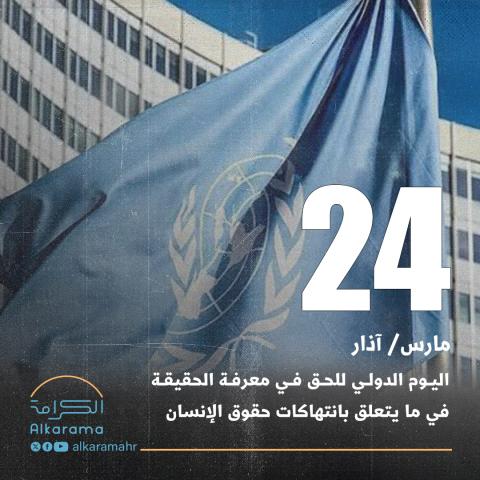
Wars, armed conflicts, and authoritarian regimes often lead to severe human rights violations that may amount to war crimes or even crimes against humanity, such as systematic torture, enforced disappearances, horrific massacres of civilians, genocide, and ethnic cleansing, among others.
When the war ends or the repressive regime collapses in a society, the recovery of that society is contingent on the success of a transitional phase in which the new authorities' task is to design and implement a genuine reconciliation process that addresses the psychological and social impacts of war or repression, enabling the society to move forward toward a bright future. The reconciliation process is based on four pillars: (1) knowing the truth, (2) preserving memory, (3) achieving justice, and (4) practicing forgiveness. While the aim of achieving justice and practicing forgiveness is to restore dignity and return rights to the victims while avoiding a spirit of revenge, knowing the truth and preserving memory aim to ensure that gross human rights violations are not repeated.
On 21 December 2010, the United Nations General Assembly declared, in its Resolution 65/196, 24 March as the International Day for the Right to the Truth Concerning Gross Human Rights Violations and for the Dignity of Victims. The aim is to commemorate the victims of gross and systematic human rights violations and highlight the importance of the right to know the truth and to establish justice.
Alkarama places great importance on knowing the truth regarding gross human rights violations and works tirelessly to ensure respect for the dignity of victims. In this context, Alkarama has continuously worked on cases of the forcibly disappeared and missing persons, who number in the tens of thousands in several Arab countries such as Algeria, Iraq, and Syria.
Alkarama has also worked on exposing the shortcomings of national reconciliation policies adopted by some Arab countries, which do not respect the basic standards of genuine reconciliation but rather work to reinforce impunity, criminalize the victims, and deprive them of the right to claim their legitimate rights.
